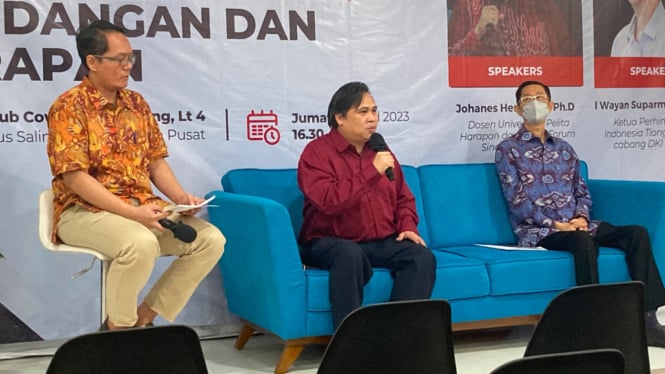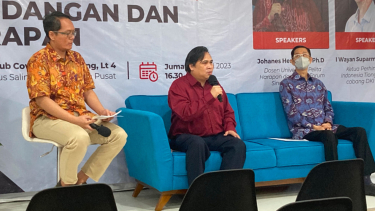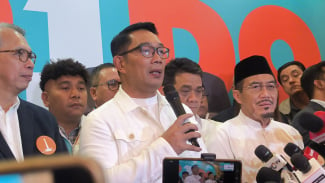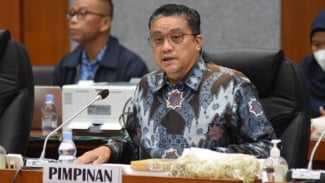The Role of Ethnic Chinese in Indonesian Politics
- Istimewa
VIVA English – The ethnic Chinese have been a part of Indonesian society since the 15th century and have played an important role in the history and political development of Indonesia. They played an active role in the Indonesian nationalist movement, particularly during the Dutch colonial period, in resisting the colonizers.
From the pre-independence period to the post-independence period, the role of the Chinese community in Indonesia was crucial. For example, they helped the country in the field of healthcare by establishing hospitals and played a role in education by establishing universities and private schools.
"For example, The Sumpah Pemuda event in the building owned by Sie Kong Liong. The event in Rangkasdengklok used the house owned by Djiaw Kie Siong," said I Wayan Suparmin, Chairman of the Indonesian Chinese Association (INTI) branch in Jakarta and the Candranaya Social Foundation, at a seminar held in Jakarta on Friday, April 14, 2023.
Johanes Herlijanto, Chairman of the Indonesian Sinology Forum, stated that during the New Order era, the government implemented assimilation policies that harmed the ethnic Chinese and had an impact on their political and economic life in Indonesia.
Acara Forum Sinologi Indonesia
- Istimewa
Despite facing discrimination, Johanes stated that the ethnic Chinese are still active in Indonesian politics today, and many are involved in political parties and community organizations, and play an important role in the Indonesian government.
Johanes cited Basuki Tjahaja Purnama, also known as BTP, who once served as the governor of DKI Jakarta as an example.
"However, despite the increasing acceptance, resistance to BTP's leadership actually increased, especially in the middle to the end of 2016. The return of identity issues emerged in the wave of resistance to BTP leading up to and along the 2017 regional elections, having a certain impact on the Chinese community," said Johanes.
Although some of these politicians and figures expressed disappointment and concerns about the resurgence of ethnicity issues around the 2017 elections, Johanes stated that they remain optimistic and enthusiastic about continuing to contribute to the country through political participation.
"This is evident from the significant number of ethnic Chinese people who participated in the 2019 general elections as candidates for legislative members, both at the national and regional levels," explained Johanes.
Johanes analyzed that this optimism and enthusiasm is partly due to their continued trust and hope in the spirit of tolerance and diversity in Indonesian society.
"They have hope in the role of political parties in improving the quality of democracy and human rights," he added.
In line with Johanes, I Wayan also emphasized the freedom and political success achieved by the ethnic Chinese in this reform era. However, he urged the Chinese community to remain wise and cautious as there are still ripples and challenges leading up to the 2024 political year.
"Let us take care not to be too overly euphoric," said Wayan.



























